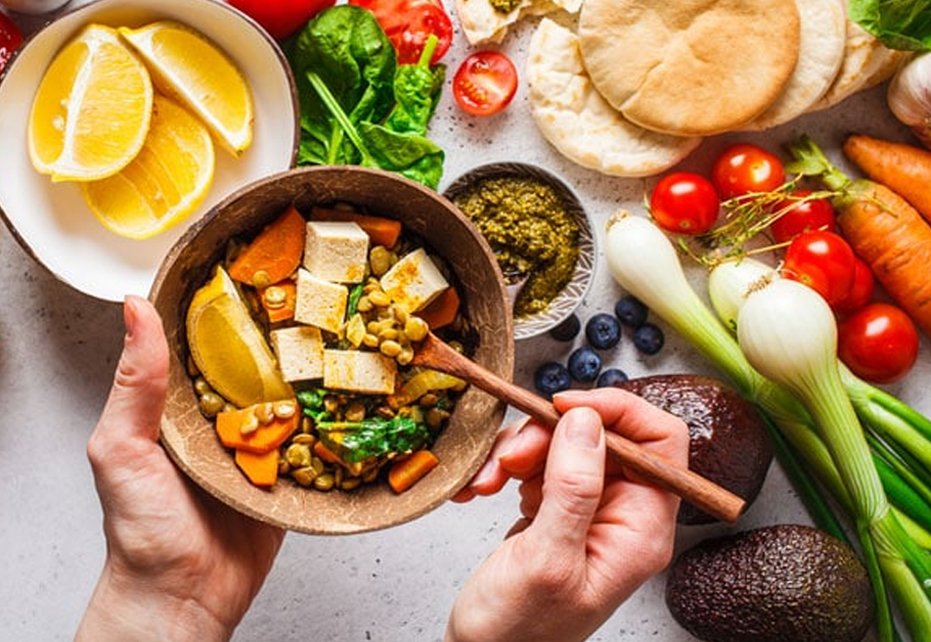
Vegan Diet Plan for Weight Loss
Vegan Diet Plan for Weight Loss
Considering a vegan diet for weight loss? Follow this comprehensive vegan diet plan to shed those extra pounds and improve your overall health. Learn about healthy breakfast options, protein sources, fruits and vegetables, whole grains, healthy fats, smart snacking, hydration, meal planning, portion control, and staying active. Remember to listen to your body and consult with a registered dietitian for personalized guidance and support on your weight loss journey.
Are you considering a vegan diet for weight loss? Going vegan can be a great way to shed those extra pounds and improve your overall health. However, it’s important to have a well-balanced and nutritious diet plan to ensure you’re getting all the essential nutrients your body needs. In this article, we’ll provide you with a comprehensive vegan diet plan for weight loss.
1. Start with a Healthy Breakfast
Begin your day with a nutritious and filling breakfast. Opt for whole grains like oats or quinoa, which are high in fiber and will keep you feeling full for longer. Add some fresh fruits or berries for added vitamins and antioxidants. You can also include a plant-based protein source like tofu or tempeh to give you an energy boost.
2. Include Protein in Every Meal
Protein is an essential macronutrient that helps build and repair tissues, as well as keep you feeling satisfied. Include plant-based protein sources such as legumes (beans, lentils, chickpeas), tofu, tempeh, seitan, or edamame in every meal. These protein-rich foods will help you maintain muscle mass while losing weight.
3. Load up on Fruits and Vegetables
Fruits and vegetables are low in calories and high in fiber, vitamins, and minerals. They are also rich in antioxidants that help fight inflammation and boost your immune system. Aim to include a variety of colorful fruits and vegetables in your diet. You can enjoy them raw, steamed, roasted, or in delicious smoothies.
4. Choose Whole Grains
Swap refined grains like white rice and white bread with whole grains such as brown rice, quinoa, whole wheat bread, and oats. Whole grains are rich in fiber, which aids in digestion and helps you feel full for longer. They also provide essential nutrients like B vitamins and minerals.
5. Healthy Fat Sources
Include healthy fats in your diet, such as avocados, nuts, seeds, and olive oil. These fats are rich in omega-3 fatty acids, which are beneficial for heart health. However, remember that fats are high in calories, so consume them in moderation.
6. Snack Smartly
Snacking can be a downfall for many people trying to lose weight. Instead of reaching for unhealthy processed snacks, opt for healthier alternatives. Some great vegan snack options include fresh fruits, raw nuts, hummus with veggies, or homemade energy balls made with dates and nuts.
7. Stay Hydrated
Drinking enough water is essential for weight loss and overall health. Water helps flush out toxins, aids in digestion, and keeps you feeling full. Carry a water bottle with you throughout the day to ensure you stay hydrated.
8. Plan and Prep Meals
Planning and prepping your meals in advance can help you stay on track with your vegan weight loss journey. Set aside some time each week to plan your meals, make a shopping list, and prepare some meals in advance. This will help you avoid reaching for unhealthy options when you’re short on time.
9. Practice Portion Control
Even though you’re following a vegan diet, portion control is still important for weight loss. Be mindful of your serving sizes and listen to your body’s hunger and fullness cues. Eating slowly and savoring each bite can also help you feel satisfied with smaller portions.
10. Stay Active
While diet plays a significant role in weight loss, incorporating regular physical activity is equally important. Find an exercise routine that you enjoy and make it a part of your daily routine. Whether it’s walking, jogging, yoga, or dancing, staying active will help you burn calories and boost your metabolism.
Remember, everyone’s body is unique, and what works for one person may not work for another. It’s essential to listen to your body and make adjustments to your vegan diet plan as needed. Consulting with a registered dietitian can also provide personalized guidance and support on your weight loss journey.
So, if you’re ready to embark on a vegan diet for weight loss, follow these tips and enjoy the benefits of a healthier, more sustainable lifestyle.

